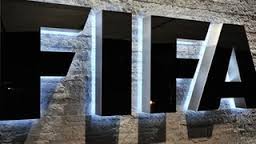By Andrew Warshaw
October 20 – The February 26 FIFA presidential election date will go ahead as planned with all attention now focussed on who will put their names forward to succeed Sepp Blatter by next Monday’s midnight deadline.
With the urgent need for robust reform and a fresh start after the worst corruption scandal in sporting history, FIFA’s executive committee resisted the temptation today to postpone the ballot in the wake of Blatter and Michel Platini being suspended by its ethics committee.
Technically Blatter could return just in time to give a tub-thumbing farewell speech after what would be 18 years in charge even if his 90-day suspension is extended by a further 45 which is allowable under the rules. By the same token Platini, having already presented the relevant papers, could still run if he, too, is a free man at the time of the election.
It’s a big ‘if’. Domenico Scala, chairman of FIFA’s Ad-hoc Electoral Committee which rules on the eligibility of candidates, didn’t mention Platini by name but made a point of revealing that anyone suspended on deadline day would be deemed ineligible.
That appeared to shut the door on Platini’s hopes but the canny Scala, an increasingly influential figure in the entire process, left it ajar by explaining that should any ban be lifted or expire before the election, contenders could retrospectively be put back into the race at the discretion of the Electoral Committee which “would decide, depending on the respective exact point in time, on how to proceed with the candidacy concerned.”
Platini, like Blatter, is adamant he is innocent of any wrongdoing and on Monday went public over the infamous SFr2 payment he received from FIFA in 2011 for work carried out nine years earlier, telling Le Monde it was “shameful” his name was being “dragged through the mud”.
UEFA members are split over whether to carry on supporting their president and the search could now be on for someone to step into the breach instead, with Dutch FA boss Michael van Praag apparently being considered.
Scala also revealed that FIFA’s Appeal Committee Chairman Larry Mussenden had withdrawn from his position on the Electoral Committee to avoid any appearance of a potential conflict of interest. Mussenden’s deputy, Fernando Mitjans, will assume the role.
So far, as well as Platini, Prince Ali bin al-Hussein of Jordan has put his name forward for a second crack at the presidency while Asian football chief Shaikh Salman bin Ebrahim Al Khalifa is also expected to contest the election. Potential outsiders include former Trinidad and Tobago midfielder David Nakhid and ex-Swiss international Ramon Vega, now an established financial expert.
Potentially more significant than maintaining the election date was a ruling by the exco, meeting for the first time since Blatter and Platini were suspended, to relax strict ethics rules on confidentiality.
Until now ethics investigators have been prevented from speaking publicly, under article 36, about which officials they are probing and why, only revealing the names when actual verdicts are reached. But FIFA have now allowed them to publish more information about ongoing proceedings, radically altering what the ethics committee can and can’t reveal, and when.
A hugely significant day of decisions didn’t end there. In a five-page presentation, Reform Committee chairman Francois Carrard published a provisional list of recommendations to be rubber-stamped at FIFA’s final exco meeting of the year in early December before going forward to the February 26 congress for approval.
The reforms, designed to make FIFA “more transparent and accountable” include weakening the power of the exco and the establishment of a ‘FIFA Council’; a maximum 12-year term for the FIFA president; an age limit of 74 for senior officials; enhanced integrity checks; and disclosure of remuneration – for years a thorny topic – not just concerning the FIFA president but all major officials in positions of responsibility.
The changes, said Carrard’s document, “are necessary to effect lasting change on the organisation and to restore FIFA’s reputation.”
Contact the writer of this story at moc.l1744426650labto1744426650ofdlr1744426650owedi1744426650sni@w1744426650ahsra1744426650w.wer1744426650dna1744426650

